Space of the Week: Low Ceilings Became an Advantage for This Cozy Living Room
A soothing palette and minimalist furnishings create an intimate space in a Hudson Valley revamp.
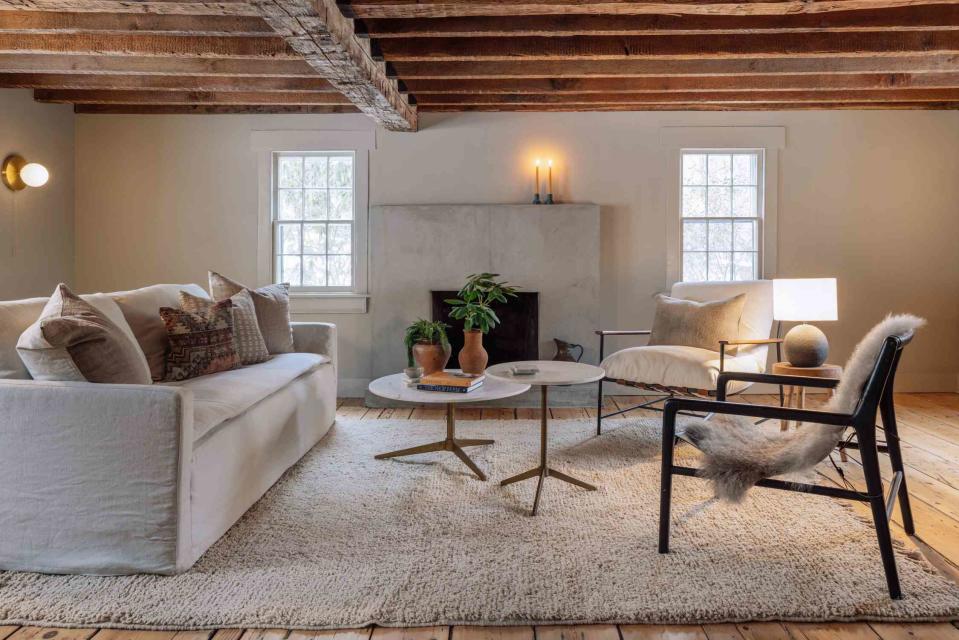
Catskill Image
For Delyse Berry, founder of Upstate Down, a real estate brokerage and interior design firm in Rhinebeck, New York, reviving a home built in 1780 was one of her toughest renovation projects to-date. Located on 2.9 acres, the two-story was full of potential but needed work to be livable—and that came with major unexpected structural updates.
“Before we took ownership, the pipes burst and much of the house was damaged,” Berry says. “We gutted it, replaced all mechanics, added spray foam insulation, and when we opened up one of the walls, even discovered the initials of the person who built it." Picture saturated floors, layers of paint, and the reassembling of original leaded windows along the way.
While some parts had been refinished over the years, Berry and her husband hoped to act as stewards of the dying home and “give it new life so it will be around for several hundred more years,” she says. Instead of fully modernizing, which some may have opted for, the pair chose to embrace the living room’s 7-foot ceilings and small windows. “We wanted to support the integrity of the home, not change it,” she says. “Original features, like the beams, windows, and flooring, are things we won’t touch.”
Related:10 Small Design Upgrades to Add Character to a New Home
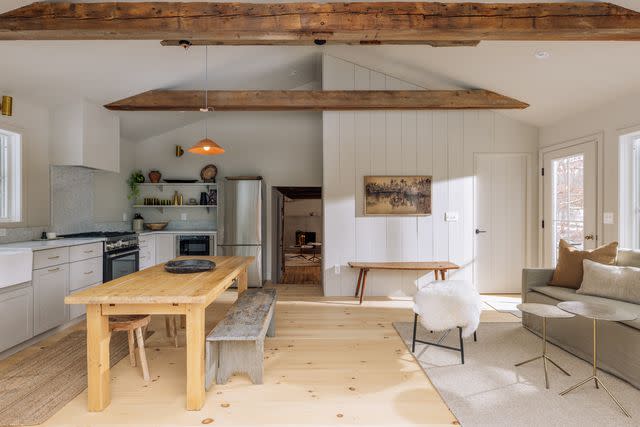
Catskill Image
Peeling back layers of dated carpeting and wood paneling gave way to beautiful pine floors, while knocking down two walls was the right decision to give the room some much-needed width and sense of airiness. Neutral, monotone furnishings were a way to bring in natural light, while khaki-colored walls celebrate the room’s naturally compact floor plan.

Catskill Image
A cement fireplace ties in perfectly while still nodding to historical architecture. “Fireplaces in the 1700s would have wood surrounds, plaster, or brick,” Berry says. “[The cement is] a contemporary layer, but still resembles what would’ve been there.” The staircase, which also had to be rebuilt, was painted dark as a bold statement, while an original brick wall was left exposed to frame the space.
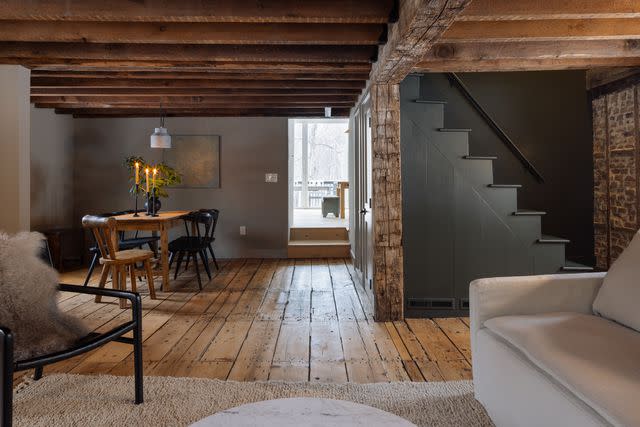
Catskill Image
After one year of working on the home, the couple is thrilled with how it turned out. “Yes, it’s a time capsule, but still feels contemporary and is a nice place to spend time,” Berry says.
Get the Look:
You don't need to start with a 1700s home to get that rustic, lived-in look. A few industrial accents and warm tones can make a big difference.
Calming Walls
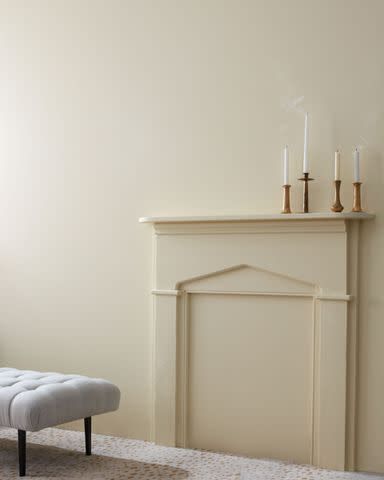
benjaminmoore.com
Abandon the crisp white paint for a soft neutral finish that provides an easy backdrop for warm and cool tones. Benjamin Moore's Revere Pewter is like a more modern alternative to beige, which can pair nicely with stone and concrete accents.
Warm Lighting
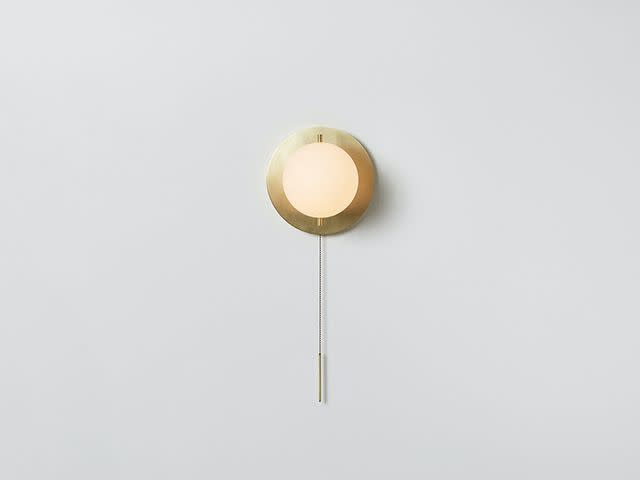
workstead.com
Turn off the overhead lights and rely on the warm lighting from lamps and sconces at different levels. This simple sconce perfectly balances a vintage and modern look that can help bridge a gap in renovated homes.
The Classic Sofa
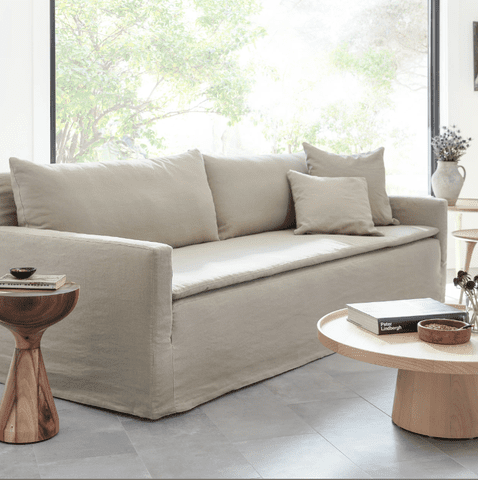
stowedhome.com
A neutral-toned sofa provides a great canvas to build upon with the addition of warm decor and natural elements. The linen upholstery gives this sofa and especially relaxed and cozy appearance.
For more Real Simple news, make sure to sign up for our newsletter!
Read the original article on Real Simple.

